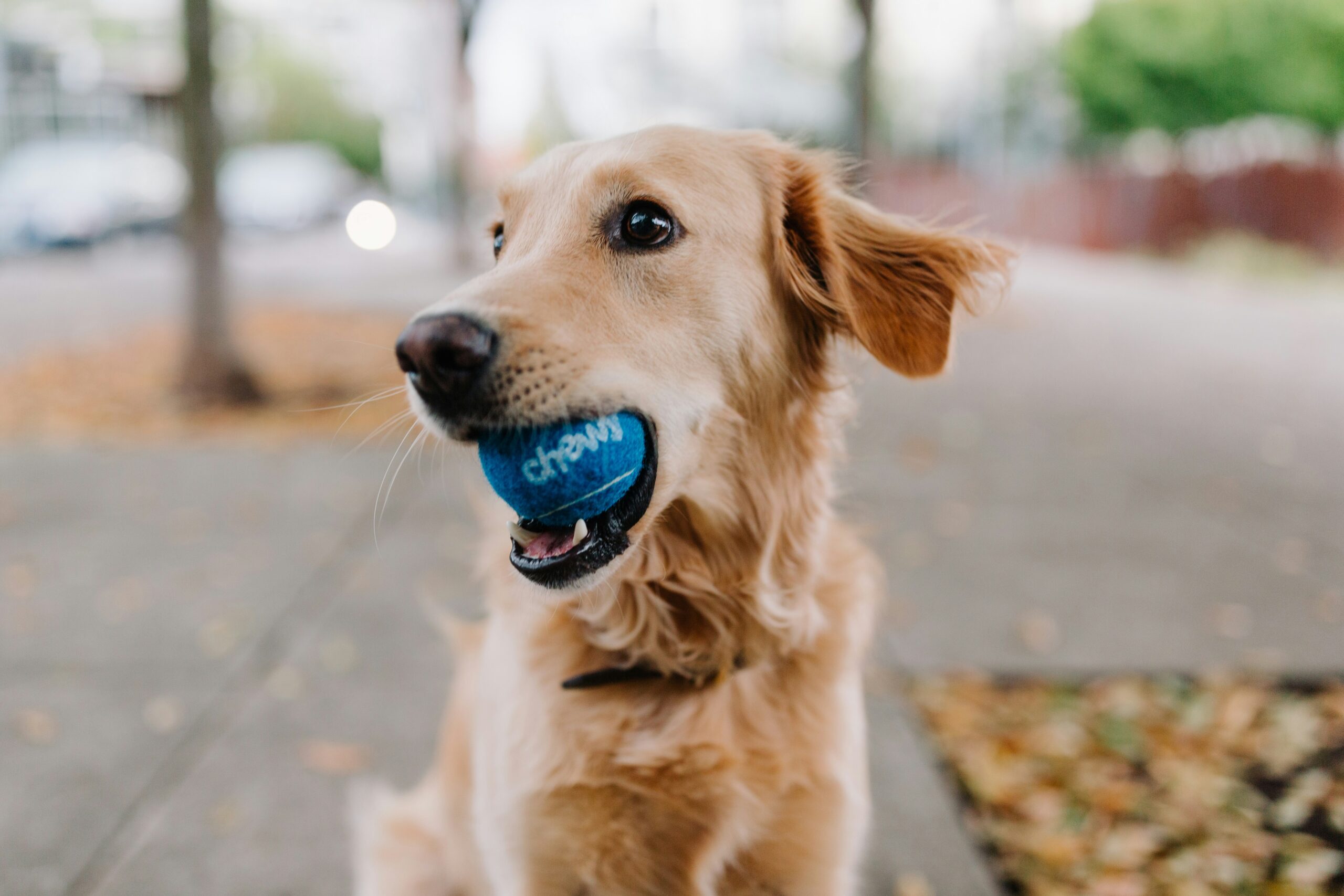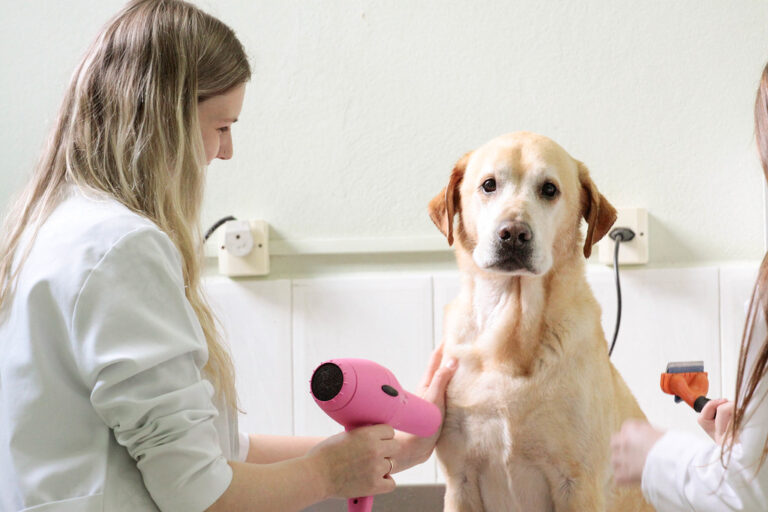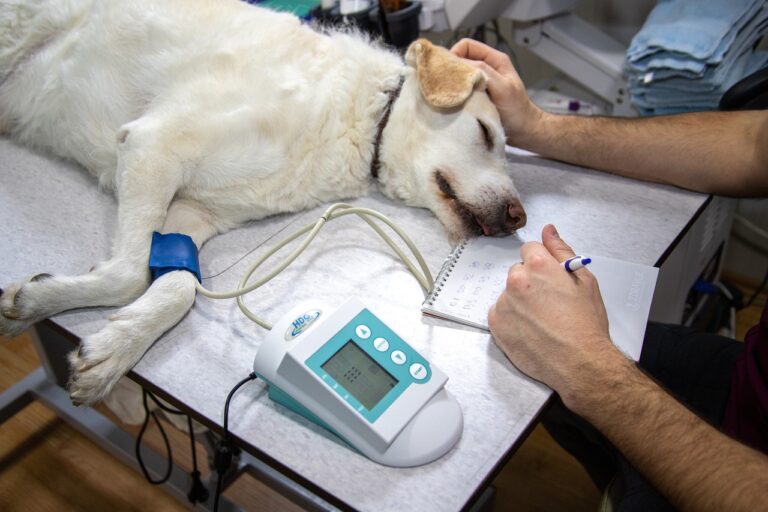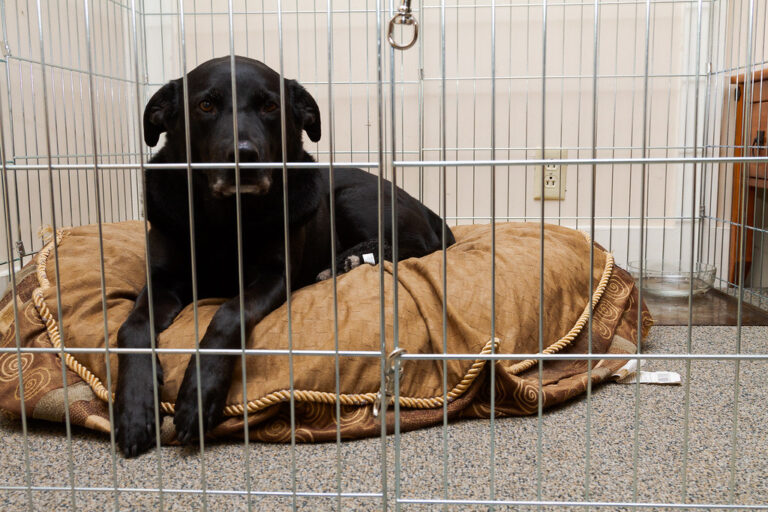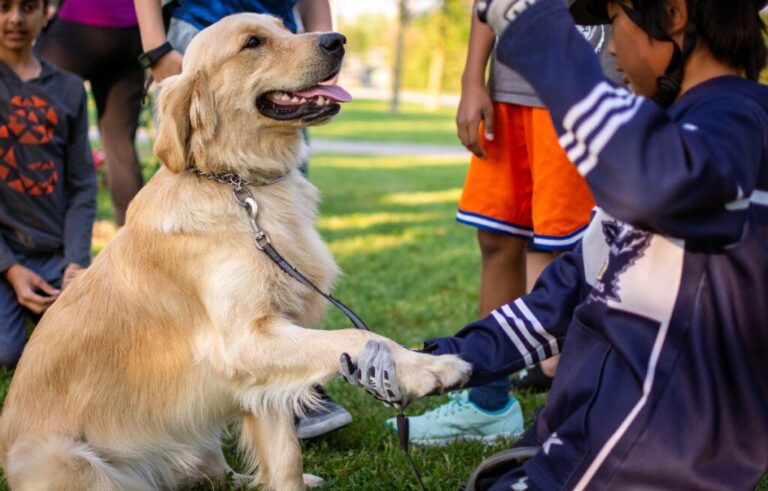Mastering the Art of Socializing: Tips for Your Labrador Retriever
The Importance of Socializing Your Labrador Retriever
If you’re considering becoming a Labrador Retriever owner, it’s crucial to understand the importance of socializing your furry companion. Proper socialization plays a key role in shaping your Labrador’s behavior, temperament, and overall well-being. Let’s explore the benefits of socializing an adult Labrador Retriever and the critical socialization period for Labrador puppies.
Benefits of Socializing an Adult Labrador Retriever
Socializing an adult dog, like a Labrador Retriever, is essential for helping them overcome fear and anxiety by exposing them to new situations and people (Hounds Lounge). By gradually introducing your Labrador Retriever to different environments, experiences, and individuals, you can help them build confidence and trust. Socialization can also prevent aggressive behavior and ensure that your Labrador feels comfortable and secure in various situations (Hounds Lounge). Additionally, socialized adult Labrador Retrievers are more likely to exhibit appropriate behavior and have positive interactions with other animals and people.
The Critical Socialization Period for Labrador Puppies
The critical socialization period for Labrador puppies occurs during the first three months of their lives (The Labrador Site). This period is when puppies are most impressionable and open to new experiences. Exposing your Labrador puppy to a wide range of sights, sounds, smells, environments, and people during this critical period is crucial. It helps prevent behavioral issues such as fear, aggression, or anxiety later in life (The Labrador Site).
During this period, it is essential to introduce your Labrador Retriever puppy to different experiences gradually and ensure that these encounters are positive. Use treats, praise, and reassurance when exposing your puppy to new situations to build their confidence (The Labrador Site). The goal is to make your Labrador associate new experiences with positive outcomes, creating a foundation of trust and adaptability.
By socializing your Labrador Retriever puppy during this critical period, you are laying the groundwork for a well-rounded, confident, and friendly adult dog. Proper socialization will help your Labrador develop appropriate social skills and be comfortable in various social settings (The Labrador Site).
Remember, whether you are socializing an adult Labrador Retriever or a Labrador puppy, consistency, patience, and positive reinforcement are key. By dedicating time and effort to socialization, you can help ensure that your Labrador Retriever becomes a well-behaved and happy member of your family.
Socializing Techniques for Labrador Retrievers
Socializing your Labrador Retriever is crucial for their overall well-being and behavior. By exposing them to new experiences and environments, you can help them become more confident and comfortable in various situations. In this section, we will explore two effective techniques for socializing Labrador Retrievers: slow introductions with positive reinforcement and exposing them to new environments.
Slow Introductions and Positive Reinforcement
When socializing your Labrador Retriever, it’s important to start with slow and gradual introductions to new people, animals, and environments. Rushing the process can overwhelm your dog and potentially lead to fear or anxiety. Take the time to observe your dog’s body language and provide positive reinforcement throughout the process.
Here are some steps to follow when introducing your Labrador Retriever to new experiences:
-
Start with controlled and calm environments: Begin by introducing your Labrador Retriever to calm and controlled environments, such as your own home or a quiet park. This allows them to become familiar with new surroundings without feeling overwhelmed.
-
Use positive reinforcement: Reward your Labrador Retriever with treats, praise, and affection when they exhibit calm and confident behavior. This positive reinforcement helps them associate new experiences with positive outcomes.
-
Gradually increase exposure: Once your Labrador Retriever is comfortable in calm environments, gradually expose them to slightly more challenging situations. This could include introducing them to different types of people, animals, or environments with controlled interactions.
-
Monitor body language: Pay close attention to your Labrador Retriever’s body language during socialization. Signs of discomfort or stress, such as trembling, cowering, or growling, indicate that they may need more time to adjust. Respect their boundaries and provide support as needed.
Exposing Labrador Retrievers to New Environments
Another effective technique for socializing Labrador Retrievers is exposing them to new environments. This helps them become accustomed to different sights, sounds, and smells, reducing the likelihood of fear or anxiety in unfamiliar situations.
Here are some tips for exposing your Labrador Retriever to new environments:
-
Start with short outings: Begin by taking your Labrador Retriever on short outings to low-stress environments, such as a quiet neighborhood or a pet-friendly store. Gradually increase the duration and complexity of the outings as they become more comfortable.
-
Encourage exploration: Allow your Labrador Retriever to explore their surroundings at their own pace. This helps them build confidence and adapt to new environments. Offer praise and rewards for positive behavior.
-
Expose them to various stimuli: Introduce your Labrador Retriever to different sights, sounds, and smells to broaden their sensory experiences. This can include encounters with other animals, exposure to different textures, or exposure to various types of people.
-
Maintain a calm demeanor: Dogs can pick up on their owner’s emotions. Stay calm and relaxed during outings to help your Labrador Retriever feel secure. Your calm energy can help them navigate new environments with more confidence.
Remember, socializing your Labrador Retriever is an ongoing process that requires patience and consistency. By utilizing slow introductions with positive reinforcement and exposing them to new environments, you can help your Labrador Retriever become a well-adjusted and confident companion. For more tips on Labrador Retriever care, training, and health, explore our other articles on Labrador Retriever topics.
Socializing with People and Animals
When it comes to socializing your Labrador Retriever, it’s important to introduce them to different people and animals in a positive and controlled manner. Proper socialization helps your Labrador develop appropriate social skills, reduces fear and aggression, and builds their confidence in various situations. Let’s explore how to introduce your Labrador to different people and other dogs.
Introducing Labrador Retrievers to Different People
To help your Labrador become comfortable around different people, it’s important to expose them to a variety of individuals early on. Start with family members and close friends, gradually expanding the circle to include strangers. Here are some tips for introducing your Labrador to different people:
-
Positive Reinforcement: Use treats, praise, and rewards to create positive associations with meeting new people. Encourage calm behavior and reward your Labrador for approaching and interacting with others in a friendly manner.
-
Gradual Exposure: Begin introductions in a controlled and calm environment. Allow your Labrador to approach new people at their own pace, and ensure that interactions are positive and non-threatening. Avoid overwhelming them with too many new individuals at once.
-
Diverse Interactions: Expose your Labrador to people of different ages, genders, and appearances. This helps them become comfortable around individuals who may look or sound different from what they’re used to.
-
Socialization Classes: Consider enrolling your Labrador in puppy socialization classes or obedience training classes. These provide structured environments for your dog to interact with both people and other dogs under the guidance of a professional trainer.
Remember, consistency and patience are key. Each Labrador is unique, and some may take longer to warm up to new people. By providing positive experiences and gradual exposure, you can help your Labrador become more confident and well-adjusted around different individuals.
Socializing Labrador Retrievers with Other Dogs
Socializing your Labrador with other dogs is equally important. It helps them learn proper social cues, develop good manners, and engage in positive play behaviors. Here’s how you can socialize your Labrador with other dogs:
-
Safe Environment: Ensure that interactions take place in a secure and controlled environment, such as a fenced yard or a designated dog park. This provides a safe space for your Labrador to interact with other dogs without the risk of them running off or encountering aggressive dogs.
-
Supervised Introductions: Introduce your Labrador to other dogs one at a time, starting with calm and well-behaved dogs. Keep the initial interactions brief and closely supervise them for any signs of fear, aggression, or discomfort. Gradually increase the duration and complexity of the interactions as your Labrador becomes more comfortable.
-
Positive Reinforcement: Reward your Labrador for positive behavior during interactions with other dogs, such as appropriate play, sharing toys, and maintaining calmness. Use treats, praise, and toys to reinforce good behavior and create positive associations with socializing.
-
Doggy Playdates: Arrange playdates with other friendly and well-socialized dogs. This allows your Labrador to engage in supervised play, learn appropriate play behaviors, and build social skills.
Always be mindful of your Labrador’s body language and reactions during social interactions. If your Labrador shows signs of fear or aggression, consult with a professional dog trainer or behaviorist for guidance on how to address these issues.
By introducing your Labrador to different people and animals in a positive and controlled manner, you can help them develop into well-socialized and confident companions. Remember to be patient, consistent, and provide plenty of positive reinforcement throughout the socialization process.
Socialization Tips for Adult Labrador Retrievers
When it comes to socializing your adult Labrador Retriever, consistency, patience, and understanding their body language are key. By following these tips, you can help your Labrador become more comfortable and confident in various social situations.
Consistency and Patience in Socialization
Socializing an adult dog, such as a Labrador Retriever, is essential for helping them overcome fear and anxiety by exposing them to new situations and people (Hounds Lounge). To effectively socialize your Labrador, it’s important to be consistent in your efforts. Set aside dedicated time each day to expose your dog to different environments, people, and experiences.
Start with low-stress situations and gradually increase the level of challenge as your Labrador becomes more comfortable. Remember that socialization is a gradual process and may take time. Be patient with your Labrador and allow them to progress at their own pace. Rushing the process can lead to increased anxiety and setbacks.
Positive reinforcement is crucial during the socialization process. Reward your Labrador with treats, praise, and affection when they display calm and appropriate behavior in social situations. This helps to reinforce positive associations and encourages them to feel more at ease.
Reading Labrador Retriever’s Body Language
When socializing an adult Labrador Retriever, it’s important to monitor their body language for signs of stress, fear, or discomfort (Hounds Lounge). Understanding your Labrador’s body language can help you gauge their comfort level and adjust the socialization process accordingly.
Some common signs of stress or discomfort in Labrador Retrievers include:
- Pacing or restlessness
- Panting excessively
- Trembling or shaking
- Cowering or trying to hide
- Excessive yawning or lip licking
- Tail tucked between the legs
- Ears pinned back
If you notice any of these signs or other signs of distress, it’s important to give your Labrador some space and remove them from the stressful situation. Pushing them too far can worsen their anxiety and hinder the socialization process.
On the other hand, positive body language indicators include relaxed body posture, loose wagging tail, and a comfortable expression. When your Labrador displays these signs, reward them with praise and treats to reinforce their positive behavior.
By consistently exposing your Labrador Retriever to various social situations and attentively observing their body language, you can help them develop confidence and social skills. Remember to be patient, provide positive reinforcement, and seek professional help if you encounter challenges along the way. For more tips on Labrador Retriever care, including training and health, check out our other articles on Labrador Retriever care.
Socializing Labrador Retrievers: Dos and Don’ts
When it comes to socializing your Labrador Retriever, there are certain dos and don’ts to keep in mind. Proper socialization is crucial for ensuring that your Labrador grows up to be a well-rounded and confident dog. Let’s explore some important guidelines for socializing your Labrador Retriever.
Dos for Socializing Labrador Retrievers
-
Start early: Begin socializing your Labrador puppy from a young age, ideally starting at around 3 weeks (The Labrador Site). Early socialization allows them to develop positive associations with various experiences and prevents the development of fear or aggression later in life.
-
Expose them to new environments: Introduce your Labrador Retriever to different environments, such as parks, busy streets, and other public places. This exposure helps them become comfortable and confident in various settings. Gradually increase the level of complexity as they become more accustomed to different environments.
-
Introduce them to different people: Socialize your Labrador with a wide range of people, including individuals of different ages, genders, and ethnicities. Encourage positive interactions and reward good behavior to build their trust and confidence around people.
-
Allow positive interactions with other dogs: Provide opportunities for your Labrador Retriever to interact with other friendly and well-behaved dogs. This helps them develop good social skills and learn appropriate behavior in canine interactions. Supervise the interactions and intervene if necessary, ensuring a positive and safe environment.
-
Utilize positive reinforcement: Reward your Labrador Retriever with praise, treats, or play for exhibiting desired behavior during socialization. Positive reinforcement reinforces positive associations and encourages them to repeat the behavior in the future.
-
Be patient and consistent: Socialization is an ongoing process. Be patient with your Labrador and provide consistent opportunities for socialization throughout their life. Consistency helps them develop a sense of security and builds their confidence in various situations.
Don’ts for Socializing Labrador Retrievers
-
Force or overwhelm: Avoid forcing your Labrador Retriever into social situations that make them uncomfortable. Respect their boundaries and allow them to approach new experiences at their own pace. Overwhelming them may lead to fear or anxiety, hindering the socialization process.
-
Punish or scold: Never punish or scold your Labrador Retriever for exhibiting fearful or anxious behavior during socialization. This can reinforce their negative associations and make them more reluctant to engage in future social interactions.
-
Expose to aggressive or unpredictable dogs: Avoid exposing your Labrador to aggressive or unpredictable dogs during socialization. Negative experiences can have lasting effects and may lead to fear or aggression in future interactions.
-
Neglect ongoing socialization: Socialization is not a one-time event. Continuously expose your Labrador to new experiences, people, and animals throughout their life. Neglecting socialization can undo previous progress and hinder their ability to adapt to new situations.
Remember, each Labrador Retriever is unique, and their socialization journey may vary. If you encounter challenges or are unsure about the best approach, consider seeking guidance from a professional dog trainer or behaviorist. With proper socialization, your Labrador Retriever can grow up to be a confident and well-adjusted companion, ready to embrace the world around them.
Socialization for Labrador Retriever Puppies
When it comes to raising a well-rounded and confident Labrador Retriever, early socialization plays a crucial role. The importance of early socialization cannot be overstated, as it sets the foundation for your puppy’s behavior and temperament throughout its life. Labrador puppies go through a critical socialization period, which typically occurs during the first three months of their life (The Labrador Site).
Importance of Early Socialization
During this critical socialization period, Labrador puppies are most impressionable and open to new experiences. Exposing them to a wide range of sights, sounds, smells, environments, and people helps prevent behavioral issues such as fear, aggression, or anxiety later in life. By providing positive and controlled socialization experiences, you can help your Labrador puppy grow into a well-rounded and confident adult dog (The Labrador Site).
Exposing Labrador Puppies to Various Experiences
To properly socialize your Labrador puppy, it’s important to expose them to a variety of experiences from an early age. This includes introducing them to different people, dogs, and environments. By doing so, you can help reduce the chances of them developing behavioral problems such as fearfulness or aggression later in life.
When exposing your Labrador puppy to various experiences, it’s important to do so gradually and in a positive manner. Start with controlled and supervised interactions, allowing your puppy to explore new environments or meet new people and dogs in a safe and controlled setting. Provide plenty of positive reinforcement, such as treats and praise, to associate these experiences with positive associations.
Remember that each puppy is unique, and they may have different comfort levels and reactions to new experiences. Pay close attention to their body language and cues. If your Labrador puppy shows signs of fear or discomfort, take a step back and give them time to adjust. Pushing them too quickly may have the opposite effect and lead to negative associations.
By consistently exposing your Labrador puppy to various experiences and providing positive reinforcement, you can help them develop into a well-socialized and confident adult dog. Remember to continue socialization throughout their first year, as this is a crucial period for their development.
For more information on raising and training Labrador Retrievers, check out our articles on understanding Labrador Retriever’s temperament, training tips for Labrador Retrievers, and exercise needs of Labrador Retrievers.
Socialization Classes for Labrador Puppies
Starting your Labrador puppy with socialization classes is a great way to help them develop into well-rounded and well-behaved dogs. These classes provide a structured environment where your puppy can interact with other dogs and people under the guidance of a professional trainer. Let’s explore the benefits and considerations of starting puppy socialization classes.
Starting Puppy Socialization Classes
You can start a puppy socialization class as early as about 9 weeks of age, as long as certain conditions are met. It’s important to note that the critical socialization window of opportunity ends around 16 weeks of age, so it’s essential to start socialization before vaccinations are completed (Preventive Vet).
Puppy socialization classes provide a controlled and safe environment for your Labrador to meet and interact with other puppies, as well as different people. Trainers in these classes focus on positive reinforcement techniques to encourage good behavior and help your puppy develop social skills.
The benefits of starting puppy socialization classes include:
-
Socialization with other puppies: Interacting with other puppies in a supervised setting allows your Labrador to learn appropriate play behavior, develop confidence, and practice important social skills.
-
Positive exposure to new environments: In a controlled environment, your puppy can experience new sights, sounds, smells, and surfaces, helping them become more adaptable and comfortable in different surroundings.
-
Guidance from professional trainers: Trainers in puppy socialization classes can offer valuable advice on proper handling, training techniques, and addressing common behavioral challenges.
-
Opportunity for socializing with different people: Puppy socialization classes provide a chance for your Labrador to meet and interact with various individuals, helping them become comfortable and friendly around different types of people.
When choosing a puppy socialization class, look for a reputable trainer or training facility that uses positive reinforcement methods and has experience with Labrador Retrievers. Ensure that the class size is manageable, allowing for individual attention and a safe environment for interactions.
Timing and Considerations for Puppy Socialization
The timing of puppy socialization is crucial. Socialization should ideally start between weeks 7 and 16, as this critical period allows dogs to be much more comfortable around people. Dogs who miss out on socializing with humans during this period may be fearful of humans for a much longer time, with some never getting genuinely comfortable around people.
It’s important to start socializing your new Labrador puppy right away, as soon as you bring them home. However, it’s also essential to take it easy during the first few days to allow the puppy to adjust to their new environment. Focus on providing calm and positive interactions and gradually introduce them to their new home environment (Preventive Vet).
While socialization classes are beneficial, it’s essential to strike a balance between socializing your puppy and ensuring their health and safety. Avoid exposing your puppy to environments where there is a high risk of contagious diseases until they have completed their initial vaccination series. Consult with your veterinarian to determine the appropriate vaccination schedule and discuss any specific concerns related to your Labrador puppy’s health.
By enrolling your Labrador puppy in socialization classes and starting early, you are providing them with valuable experiences that will contribute to their overall development and help them become well-adjusted, confident, and socially adept dogs. Remember to continue socializing your Labrador throughout their lives to maintain their positive behavior and social skills.
Troubleshooting Socialization Challenges
Socializing an adult Labrador Retriever that may have missed out on early socialization can present some unique challenges. Dogs who have not been properly socialized during their critical period may exhibit fearful, anxious, over-excited, or even aggressive behavior (Preventive Vet). However, with patience, understanding, and the right approach, it is possible to help your unsociable adult Labrador Retriever become more comfortable in various social situations.
Socializing Unsociable Adult Labrador Retrievers
When working with an unsocialized adult Labrador Retriever, it is essential to set realistic expectations. While they may not become as comfortable and accepting of everything as a well-socialized dog, the goal is to help them become comfortable enough to handle necessary experiences throughout their life (Preventive Vet).
To begin the socialization process, it’s important to start slowly and gradually expose your Labrador Retriever to different environments, people, and animals. Use positive reinforcement techniques, such as rewards and praise, to help build positive associations with these new experiences. Pay close attention to your dog’s body language and provide them with plenty of breaks and opportunities to retreat if they feel overwhelmed.
It can be helpful to start socializing your Labrador Retriever in controlled environments with calm and predictable stimuli. This might include introducing them to one new person or dog at a time, in a quiet space where they feel safe. As they become more comfortable, gradually increase the level of exposure and introduce them to more challenging social situations.
Seeking Professional Help for Socialization Challenges
If you’re facing difficulties in socializing your unsociable adult Labrador Retriever, seeking professional help can be highly beneficial. Certified trainers or board-certified veterinary behaviorists have the expertise and experience to guide you through the process and provide personalized assistance based on your dog’s specific needs.
These professionals can help you develop a customized socialization plan and provide you with practical techniques and strategies to address any behavioral challenges. They can also help you understand your Labrador Retriever’s body language, identify triggers, and implement counter conditioning techniques to change their emotional response to certain situations.
Remember, socializing an unsociable adult Labrador Retriever takes time, consistency, and patience. By gradually exposing them to new experiences and seeking professional guidance when needed, you can help your Labrador Retriever become more comfortable and confident in social settings.
